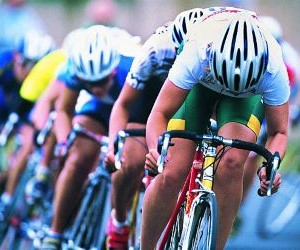Discover the powerful benefits of cycling every day—from better health and mental clarity to eco-savings and long-term fitness—one pedal stroke at a time.
HOW DO I PREPARE FOR A CYCLING MARATHON?
Preparing for a cycling marathon requires more than simply logging miles—it’s about building endurance, refining technique, fueling properly, and developing mental resilience. Many cyclists underestimate the planning required, which can lead to fatigue, injuries, or underperformance on race day. This article provides a complete roadmap to preparing for a cycling marathon, including structured training, nutrition strategies, equipment choices, and mindset preparation, ensuring riders are fully equipped to handle the challenge.

Building a training foundation
Training for a cycling marathon starts with establishing a strong foundation. Riders must gradually build endurance, improve cardiovascular capacity, and condition muscles to sustain long efforts. This process takes months of progressive training, not weeks, making consistency the cornerstone of preparation.
Structuring your training plan
A good training plan includes long rides to build endurance, interval sessions to develop power, and recovery days to prevent overtraining. Increasing volume by no more than 10% per week helps reduce the risk of injury. Monitoring metrics such as heart rate and power output ensures riders train in the right zones for optimal adaptation.
Balancing endurance and strength
While long-distance rides are essential, cyclists should also incorporate gym-based strength training. Squats, lunges, and hamstring-focused exercises enhance muscular endurance and balance. Core work improves stability on the bike, reducing fatigue over extended distances.
Long rides once per week to build base endurance
Interval training for power and climbing ability
Strength workouts targeting lower body and core
Active recovery sessions to aid adaptation
Progressive training volume increases
This structured approach ensures cyclists develop the endurance, strength, and resilience required for marathon distances without risking burnout.
Nutrition and hydration strategies
Fueling the body properly before, during, and after training is critical for cycling marathon success. Riders burn thousands of calories over long rides, and improper nutrition can lead to bonking, dehydration, and diminished performance.
Daily nutrition for training
A balanced diet rich in complex carbohydrates, lean proteins, and healthy fats supports consistent training. Carbohydrates replenish glycogen stores, while protein aids muscle repair. Riders should focus on whole foods such as oats, rice, fish, eggs, and vegetables, ensuring sustained energy and recovery.
Race-day fueling plan
On race day, cyclists should aim to consume 30–60 grams of carbohydrates per hour, delivered through energy gels, bars, or drinks. Hydration strategies must balance water intake with electrolytes to prevent cramps. Practicing this nutrition strategy during training ensures the digestive system adapts before the marathon.
Maintain a balanced daily diet for consistent energy
Consume 30–60 grams of carbs per hour during rides
Replenish electrolytes to prevent dehydration
Practice fueling strategies in training, not just race day
Recover with protein-rich meals post-ride
Nutrition is the fuel that powers every pedal stroke. Dialing in the right balance between carbs, protein, and hydration can make the difference between finishing strong and struggling through the final miles.
Gear, mindset, and final preparations
Having the right equipment and mental approach is just as important as physical preparation. From choosing the right bike setup to cultivating psychological resilience, these elements ensure riders are ready for any challenge a cycling marathon presents.
Essential gear for success
A properly fitted bike reduces fatigue and maximizes efficiency. Riders should also invest in quality cycling shorts, shoes, and helmets for comfort and safety. Accessories such as GPS devices, power meters, and heart rate monitors provide valuable real-time data during the race.
The mental game of endurance
Cycling marathons are as much a mental challenge as a physical one. Visualization, positive self-talk, and breaking the course into smaller segments help riders stay focused and motivated. Training in tough conditions also builds resilience for unexpected race-day challenges.
Ensure bike fit is optimized for comfort and efficiency
Invest in high-quality gear and accessories
Practice mental strategies like visualization
Simulate race conditions during training
Rest adequately during taper weeks before the event
By combining proper gear, nutrition, training, and mental readiness, cyclists set themselves up for success. Final preparations, including tapering and equipment checks, ensure the body and mind are aligned for peak performance on race day.
YOU MAY ALSO BE INTERESTED








